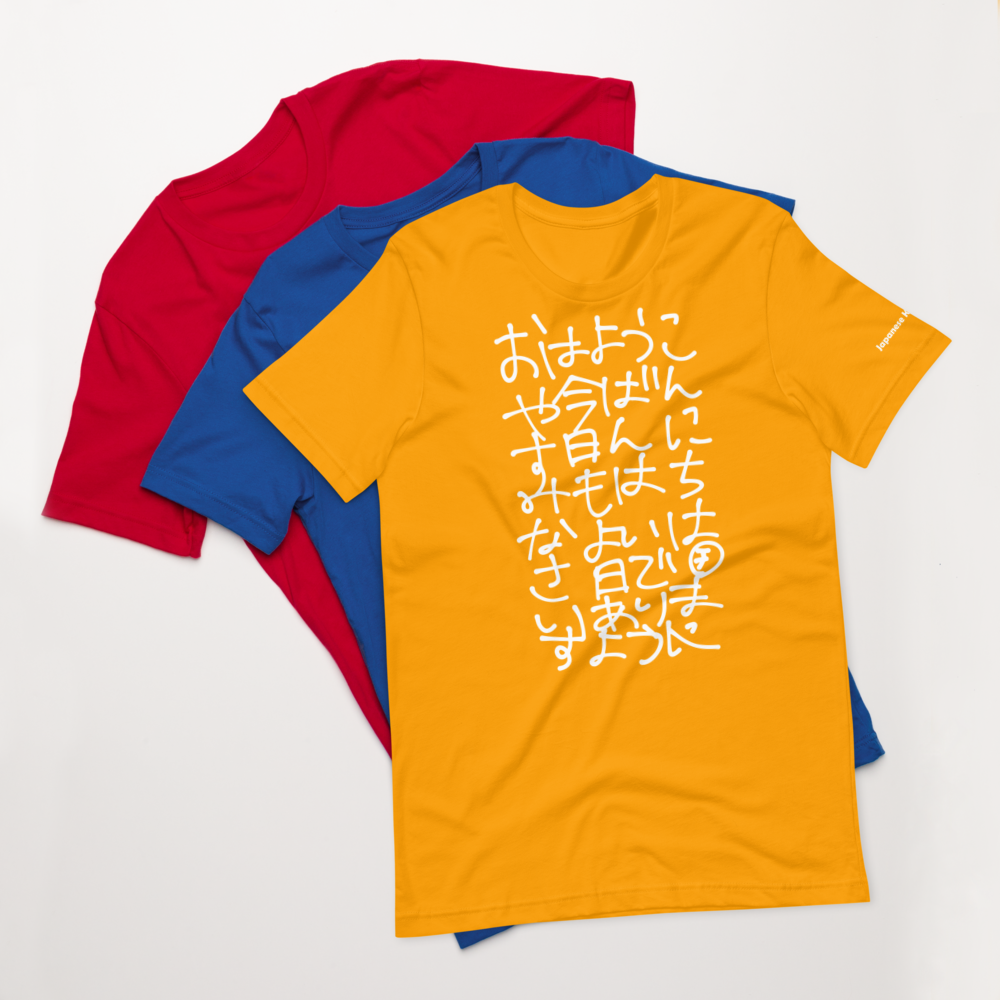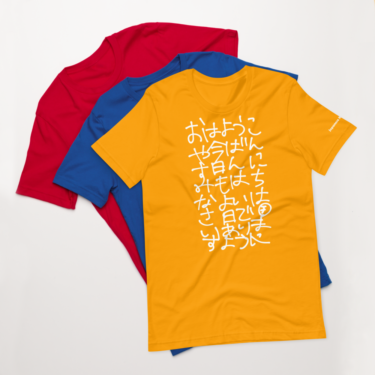”挨拶・AISATSU”(Greeting)
1. a ceremonial action or word exchanged when meeting someone; 2. an expression of congratulations, gratitude, or affection at a ceremony, appointment, or departure.
“おはよう・Ohayo” Good morning (morning)
“こんにちは・Konnichiwa” Hello (daytime)
“こんばんは・Konbanwa” Good evening (in the evening or at night)
“お休みなさい・Oyasuminasai” Good night (when leaving at night, before going to sleep)
The daily greetings that are exchanged throughout the day are expressed by connecting them like a puzzle.
A pleasant greeting in the morning is a good way to start the day. The evening greeting seems to exude a sense of care for the other person.
From “おはよう(Good morning)” to “お休みなさい(Good night)”, greetings are exchanged throughout the day, including “How are you?”, “Good luck today”, “You worked hard”. It is not a direct greeting, but I think it contains thoughtfulness for the other person in an unseen way.
It would be nice if the happiness of you and the people around you increased with each greeting you exchanged. Let’s say it out loud.
“I hope today will be a wonderful day for you.”
”挨拶・AISATSU”(Greeting)
The daily greetings that are exchanged throughout the day are expressed by connecting them like a puzzle.
A pleasant greeting in the morning is a good way to start the day. The evening greeting seems to exude a sense of care for the other person.
It would be nice if the happiness of you and the people around you increased with each greeting you exchanged. Let’s say it out loud.
“I hope today will be a wonderful day for you.”
Design and Writing:千尋(Chihiro)
「挨拶」(あいさつ)
『1.人と会ったとき取りかわす儀礼的な動作・言葉。2.儀式・就任・離任などの時、祝意・謝意・親愛の意などを述べる言葉。』〜”Oxford Languages”より
「おはよう」(朝)
「こんにちは」(昼間)
「こんばんは」(夕方から夜)
「お休みなさい」(夜に別れる時、眠る前)
1日を通して交わされる日常的な挨拶を、パズルのように繋げて表現しました。
気持ちよく朝の挨拶をすると、1日のスタートを軽やかにきることができます。夜の挨拶には、相手への労りの気持ちが滲み出るような気がします。
「おはよう」から「お休みなさい」まで1日を通じて交わされる挨拶には「元気?」「今日もよろしく」「頑張ったね」直接ではないけれど、見えない部分にそっと、相手への思いやりが含まれていると思います。
1日の挨拶を交わすたびに、あなたとあなたの周りの人達の幸福度が増していったらいいですね。口に出して言ってみましょう。
「今日もよい日でありますように」
Design and Writing : 千尋




![[寿司・SUSHI#5] “芽葱・MENEGI” green onion sprouts T-shirt](https://japanese-kanji-lab.jp/wp/wp-content/uploads/2021/06/baby-short-sleeve-one-piece-dark-grey-heather-front-60bde4a9da2d7-375x375.png)

